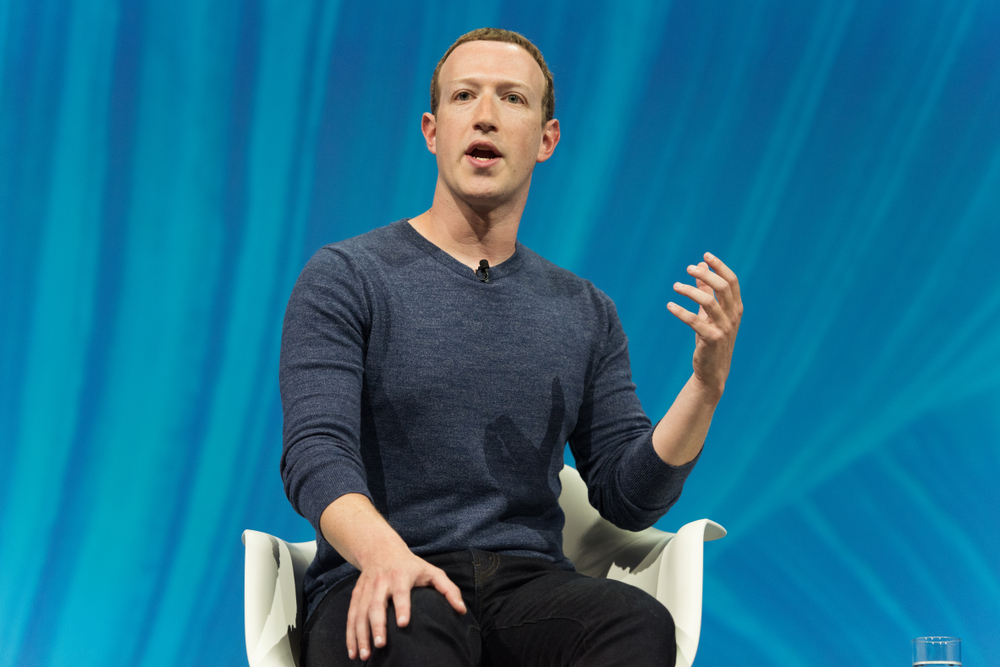Facebook considers Article 11-friendly news section
The project has undergone internal trials and could point to the first successful news aggregation model under Article 11


Mark Zuckerberg has discussed the possibility of bringing a news section to Facebook, demonstrating the earliest look at the future of news aggregation under Article 11.
The news is interesting because Facebook famously dropped news over a year ago, or at least said it would feature less of it, but now as Article 11 is approved the proposed model would fit nicely with the new 'link tax' that will hit the EU in two years' time.
Zuckerberg offered the insight into Facebook's plan that has been in the pipeline for months now in an interview with Mathias Dpfner, CEO of Axel Springer - Europe's largest publisher.
For those unaware, Article 11 will now compel news aggregators to either pay news publishers for the right to list their content on their aggregation platform or remove it completely. The thinking behind this is that it will supposedly reimburse news sites for those missed link clicks when users just skim the headline and snippet of a story, say on Google Search.
But Facebook's plan to forge relationships with publishers isn't set in stone and they're not 100% committed to the idea of paying publishers for a license to list their content - Facebook, in true Facebook fashion, could try and incentivise publishers with a cut of advertising revenue instead of a direct payment for their content.
Whatever the minutiae are behind the final model, if it goes to market at all, Zuckerberg assures users that it will be free for them, "this isn't a revenue play for us" said Zuckerberg.
The CEO sees the new section as not only a potential extension of Facebook, but also as a way to grow and evolve journalism as a field.
Get the ITPro daily newsletter
Sign up today and you will receive a free copy of our Future Focus 2025 report - the leading guidance on AI, cybersecurity and other IT challenges as per 700+ senior executives
"I would hope in the online ecosystem that new types of journalism can thrive, in particular local journalism which is having a hard time transitioning to the internet in general," he said. "I would hope that we can support that and make it more sustainable both from a distribution and monetisation perspective."
"I also think there are potentially new models of independent journalists, people doing work that's more based around their own analysis - there isn't a strong model around that today but potentially we could make that happen," he added.
Facebook has toyed with the idea of a dedicated news section to the site previously. In Autumn 2017 the site trialled the feature in six countries but pulled the plug on it by March 2018. We do know that the feature in its current form has been trialled internally at Facebook and to come out and announce it publicly shows genuine intent from Facebook to re-enter the news space.
The interview follows the passing of Article 11 and also Facebook's commitment to combat the spread of disinformation on its platform. The site is purging many accounts every day relating to disinformation and inappropriate content.
The site recently came under fire for allegedly promoting, or not doing enough to quell the spread of dangerous anti-vaccination propaganda on its platform through Facebook Groups. One of the most popular groups called 'Stop Mandatory Vaccination' has over 160,000 members and posts more than ten times per day.
There have been calls from opponents and health experts for Facebook to tackle this with greater force, but the company faces an ethical conflict between its position to safeguard the safety and sanctity of the internet and its platform with the human right of free speech.

Connor Jones has been at the forefront of global cyber security news coverage for the past few years, breaking developments on major stories such as LockBit’s ransomware attack on Royal Mail International, and many others. He has also made sporadic appearances on the ITPro Podcast discussing topics from home desk setups all the way to hacking systems using prosthetic limbs. He has a master’s degree in Magazine Journalism from the University of Sheffield, and has previously written for the likes of Red Bull Esports and UNILAD tech during his career that started in 2015.
-
 Cleo attack victim list grows as Hertz confirms customer data stolen
Cleo attack victim list grows as Hertz confirms customer data stolenNews Hertz has confirmed it suffered a data breach as a result of the Cleo zero-day vulnerability in late 2024, with the car rental giant warning that customer data was stolen.
By Ross Kelly
-
 Lateral moves in tech: Why leaders should support employee mobility
Lateral moves in tech: Why leaders should support employee mobilityIn-depth Encouraging staff to switch roles can have long-term benefits for skills in the tech sector
By Keri Allan